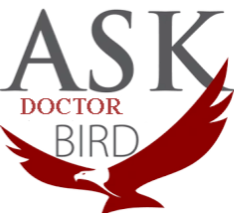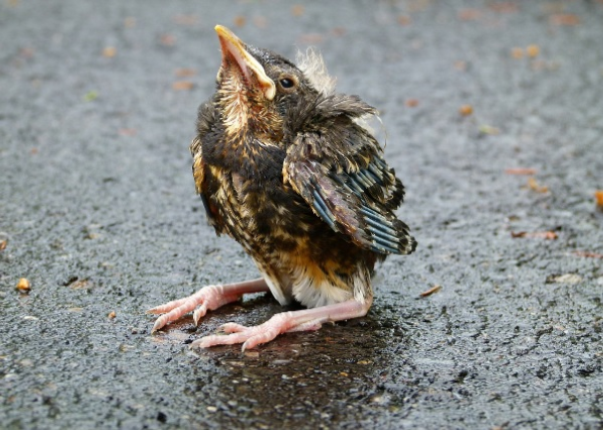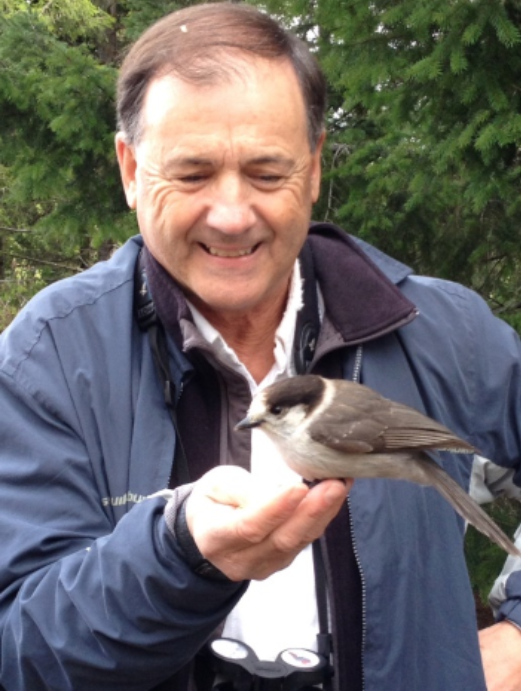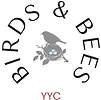Question:
On occasion in the beginning of summer, I find a baby bird on the ground and I find it hard to let nature take its course. What can I do to help?
Response:
That is just about that time when many songbirds fledge their young and it is not uncommon for many of us to come across a baby bird that appears helpless and in need of assistance. In most cases, it is usually a youngster that has just left the nest. They are recognizable by having a full coat of feathers but not full flight capability. Look around for the nest and try to place it back in the nest. Failing that, put the bird on a branch several feet off the ground and let the parents respond to its begging calls. The other possibility is that the bird has somehow prematurely fledged from a nest, either fleeing from a predator or because the nest has somehow been compromised. If the youngster easily allow you to pick it up and it is not fully feathered out, this generally means that it is need of assistance and will likely perish if left alone. So what to do? Well, first it would be helpful if one had some idea as to what species the bird is. That is not easy for most folks. The internet has little information on that aspect of birds and most people do not have access to a book called “A Guide to the Nests, Eggs and Nestlings” by Paul Baicich and Colin Harrison, like I do. But whether the bird is a pigeon or a robin, the first step is to place the nestling on a towel or pillowcase or natural grasses in the bottom of a smallish cardboard box; the cloth prevents the bird’s feet from slipping. Depending on how unfeathered the bird is, placing a small lamp or hot water bottle in the box to provide some heat is a good idea. If it is obviously begging for food and assuming that the species is unknown, try offering tiny chopped-up pieces of raw liver of hard-boiled eggs, or moistened dog or cat kibble. Do not feed them water, bread, whole birdseed, milk or worms. One can find more information by searching the internet. But take my word for it—you do not want to become a parent to a baby bird. Depending on their age and species, baby birds may eat every 10 to 20 minutes to 12 to 14 hours per day. Here is what I would do instead. Almost every town or city has an organization dedicated to helping wildlife in distress. Use the internet or contact your local municipality to find out how to contact one and then put the bird in the hands of those who know what they are doing. And do not forget to throw in a small donation—almost all these organizations are self-funded and they always need money. Think of the time and stress they will have saved you as well as the good feeling that you have helped nature out in some small way.
Wildlife Rehabilitation in and near Calgary: Calgary Wildlife Rehabilitation Society (403) 214-1312
Alberta Institute for Wildlife Conservation (403) 946-2361
David M. Bird, Ph.D., Emeritus Professor of Wildlife Biology, McGill University www.askprofessorbird.com

David M. Bird is Emeritus Professor of Wildlife Biology and the former Director of the Avian Science and Conservation Centre at McGill University. As a past-president of the Society of Canadian Ornithologists, a former board member with Birds Canada, a Fellow of both the American Ornithological Society and the International Ornithological Union, he has received several awards for his conservation and public education efforts. Dr. Bird is a regular columnist on birds for Bird Watcher’s Digest and Canadian Wildlife magazines and is the author of several books and over 200 peer-reviewed scientific publications. He is the consultant editor for multiple editions of DK Canada’s Birds of Canada, Birds of Eastern Canada, Birds of Western Canada, and Pocket Birds of Canada. To know more about him, visit www.askprofessorbird.com or email david.bird@mcgill.ca.




